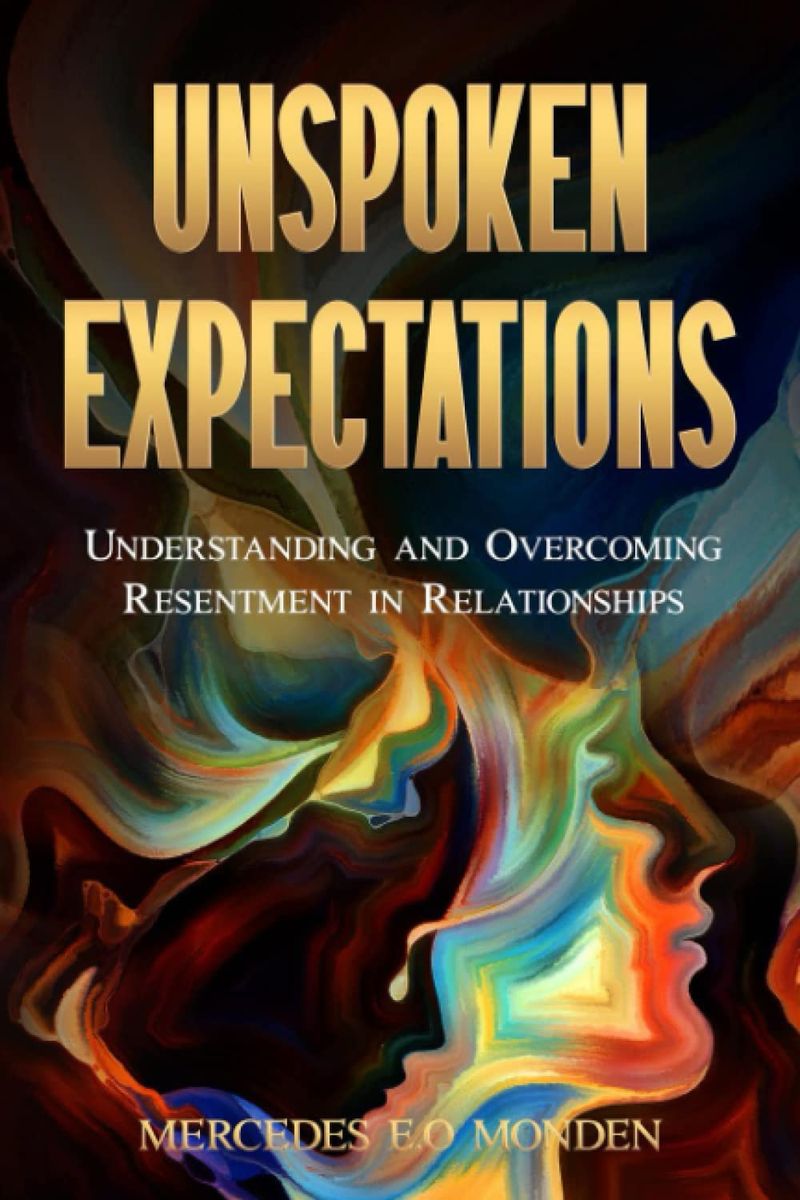In the dim, ambient light of bars, bartenders become accidental confidants to countless patrons. The whispered confessions and drunken revelations they hear often paint a vivid picture of the complexities and struggles within modern relationships. From tales of unrequited love to reflections on loneliness, the stories shared over clinking glasses reveal a raw, unfiltered truth about the emotional landscape many navigate. Here are 14 things bartenders hear every night that shed light on the darker aspects of modern relationships.
1. The Perennial “It’s Complicated”

“It’s complicated,” they confess, tracing the rim of their glass. This phrase, often uttered with a sigh, encapsulates the tangled web of modern entanglements. Relationships today rarely fit into neat categories, leaving many feeling adrift in ambiguity.
The vagueness of ‘complicated’ can mask underlying issues, whether it’s fear of commitment or unresolved past relationships. This complexity can create a sense of emotional limbo, where clarity is elusive, and contentment feels just out of reach. Yet, beneath the complexity, there’s a shared desire for understanding and connection that remains unfulfilled.
2. The Loneliness of Togetherness

Amidst laughter and chatter, the quiet admission of feeling alone together strikes a chord. This paradox of connection and isolation is a common refrain, reflecting the emotional distance that can creep into even the closest partnerships.
Feeling lonely while with someone else suggests unmet emotional needs and a lack of genuine intimacy. Despite sharing physical space, the emotional gap widens, often leading to a sense of being misunderstood or neglected. This loneliness silently erodes the foundation of relationships, leaving individuals yearning for deeper, more meaningful bonds.
3. The Ghost of Past Loves

Memories of past loves often haunt the present, surfacing in conversations over drinks. The ghost of an old relationship lingers, casting shadows over new connections and impeding emotional progress.
These remnants of former loves serve as reminders of both joy and heartache. They color perceptions and expectations, sometimes hindering the ability to fully embrace the now. Yet, they also teach valuable lessons, shaping the way individuals approach future relationships. Acknowledging and understanding these ghosts can be a step toward healing and moving forward.
4. The Pressure of Perfection

In a world obsessed with perfect selfies and curated lives, the pressure to maintain a flawless relationship is palpable. The burden of perfection weighs heavily, leaving many feeling inadequate and anxious.
Conversations often reveal fears of not measuring up to societal ideals. The quest for perfection can stifle authenticity, making genuine connections harder to achieve. This pressure breeds insecurity and discontent, fostering a cycle of comparison and self-doubt. Breaking free from these unrealistic standards can lead to more honest, fulfilling relationships, where imperfections are embraced and cherished.
5. The Silent Compromise

Silence speaks volumes, especially when it comes to compromises made in relationships. Many sit in quiet reflection, pondering the sacrifices made and those yet to come.
Silent compromises often stem from a desire to maintain harmony, yet they can lead to unspoken resentment over time. Without open communication, these sacrifices can become sources of tension, silently festering beneath the surface. The challenge lies in finding a balance between self-sacrifice and mutual satisfaction, ensuring that both partners feel valued and heard in the relationship.
6. The Endless Swipe

The digital age has transformed dating into a seemingly endless cycle of swiping left and right. This search for connection often leaves individuals feeling both hopeful and frustrated.
As bartenders observe, the promise of finding the ‘perfect match’ can quickly turn into disillusionment when real connections fail to materialize. The superficial nature of app-based dating can lead to fleeting interactions, lacking depth or sincerity. Yet, there’s a persistent hope that the next swipe might lead to something real, driving many to continue the search despite the challenges.
7. The Fear of Missing Out

FOMO, or the fear of missing out, often finds its way into the hearts of those in relationships. The allure of perceived freedom can create tension, leading to doubts about commitment.
At the bar, conversations reveal a yearning for experiences and opportunities seemingly out of reach because of relationship ties. This fear can foster dissatisfaction, prompting individuals to question their choices and seek validation outside their partnership. Understanding the root of FOMO can help mitigate its impact, emphasizing the value of shared experiences and growth within a relationship.
8. The Comfort of Routine

Routine can be both comforting and confining in relationships. The familiar rhythm of life together provides stability, yet it can also lead to stagnation if not balanced with spontaneity.
Conversations reveal a mix of contentment and restlessness, as partners navigate the fine line between comfort and monotony. Routine offers predictability, but it can also dull the excitement that once sparked a connection. Embracing change and seeking new experiences together can help renew the relationship, injecting fresh energy and enthusiasm into daily life.
9. The Tug-of-War of Independence

Balancing individuality and togetherness is a delicate dance in relationships. The struggle to maintain independence while fostering connection is a common theme.
As conversations at the bar unfold, many express the desire for autonomy without sacrificing partnership. This tug-of-war can create tension, as partners seek to assert their individuality while nurturing their bond. Finding harmony in this dynamic requires understanding and compromise, allowing each person to grow and thrive both personally and together. Successful relationships embrace this duality, celebrating both unity and independence.
10. The Unspoken Expectations

Expectations silently shape relationships, often leading to misunderstandings and disappointment. In the hushed conversations shared over drinks, unspoken desires and assumptions come to light.
These expectations, if not communicated, can create invisible barriers to intimacy and trust. Partners may find themselves feeling unfulfilled, as their needs and desires remain unvoiced. Honest dialogue is key to bridging this gap, fostering a relationship built on mutual understanding and shared goals. Exploring these unspoken expectations can lead to a deeper connection and a more resilient partnership.
11. The Dance of Jealousy

Jealousy, the green-eyed monster, often rears its head in relationships. At the bar, the subtle dance of jealousy is a familiar sight, revealing insecurities and fears.
This emotion can stem from a lack of trust or confidence, creating tension and conflict. When left unchecked, jealousy can damage the foundation of a relationship, breeding resentment and suspicion. Addressing the root causes of jealousy, such as insecurity or past betrayals, is crucial in overcoming its detrimental effects. Building trust and open communication can help transform jealousy into a catalyst for growth.
12. The Echo of Betrayal

Betrayal leaves an indelible mark on relationships, an echo that resonates long after the initial wound. At the bar, the stories of betrayal are shared with a mix of anger and sorrow.
This breach of trust can shatter the very core of a partnership, leading to feelings of hurt and distrust. Healing from betrayal requires time, patience, and a willingness to rebuild what was broken. For some, it’s a chance to start anew, while for others, it may signal the end. The journey through betrayal is deeply personal, shaped by individual resilience and forgiveness.
13. The Quest for Balance

Striking a balance between responsibilities and pleasures is a challenge in modern relationships. The quest for equilibrium often dominates conversations, highlighting the need for both structure and spontaneity.
Partners discuss the juggling act of managing work, family, and personal time, seeking harmony in their shared life. This balance is essential for sustaining a healthy relationship, preventing burnout and fostering mutual support. Embracing flexibility and prioritizing togetherness can help maintain this equilibrium, allowing both partners to thrive individually and as a couple.
14. The Illusion of Control

The illusion of control in relationships is a recurring theme. Despite efforts to steer the course, the unpredictability of love often prevails.
Bartenders hear stories of partners trying to manage every aspect of their relationship, only to realize that true control is elusive. This realization can lead to anxiety and stress, as individuals grapple with the unknown. Embracing the unpredictability of relationships can be liberating, allowing partners to let go and enjoy the journey. Accepting the ebb and flow of emotions and experiences fosters resilience and deepens the connection.

